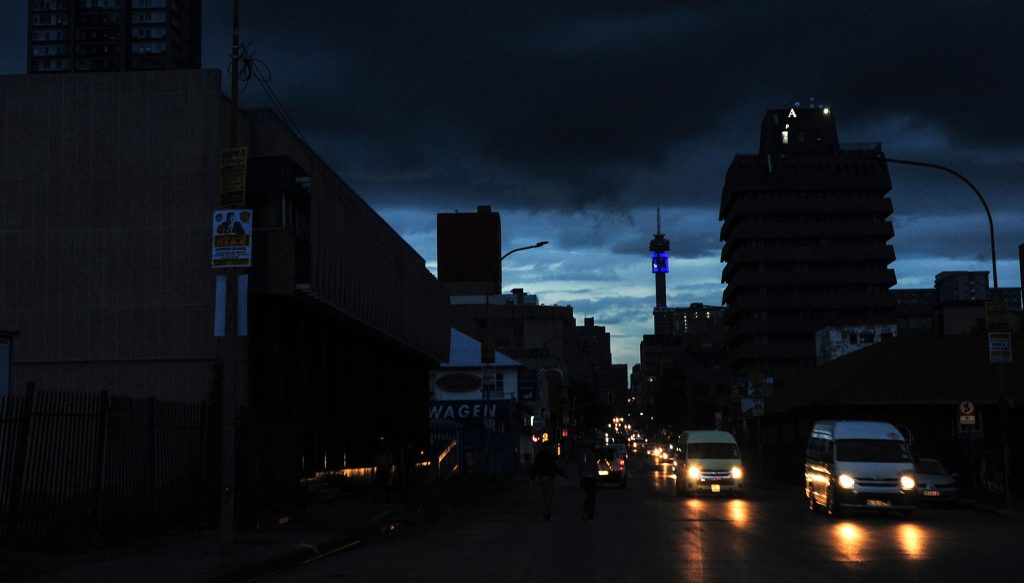All this electricity is making me uneasy. Not only have I not had significant load shedding over the last few weeks, but now there is talk of yet more power to come, from Kusile. That’s all very nice, but I am not sure what we will do with the additional supply. It’s uncomfortable and it feels quite unnecessary to toy with us like this.
Especially since we were promised a cold, dark and depressing winter.
I have long suffered from LAD (Load shedding anxiety disorder). I coined the phrase some months back when I found myself more anxious when the power didn’t go out as promised, than when it did. And then, when it finally flickered and dimmed, I would not be able to concentrate on anything until it was back. Never sure if this was the “big one” that the Economic Freedom Fighters had been promising us since they had nothing else to offer in the way of constructive conversation.
LAD is a real thing. It might not yet be covered in psychology textbooks under the well-known DSM definitions of mental disorders, but that doesn’t make it less of a concern. It combines post traumatic syndrome with high levels of anxiety along with fear of the dark and cold dinners. It has an eating disorder component as South Africans rush to heat and eat before stumbling around in the dark.
We thought that it was going to get worse.
With former Eskom CEO André de Ruyter having exited stage left and with him hiding somewhere with uninterrupted power, in dark glasses and a fedora, we were convinced that we would have less power than Zimbabwe on an average Tuesday.
LAD sufferers rushed to install solar where we obsessively check our apps and stats more than we check Instagram. We know at any given moment how full our batteries are and exactly what we are drawing from the grid. We are acutely aware of the electricity demand of each home appliance and know just by looking at the app if someone is using a hairdryer.
Not nosey neighbours
We also can tell you the number of solar panels attached to each roof of every house on our street, if not the entire neighbourhood. We also somehow will know which is contracted long term, and which has been bought outright.
And it’s not because we are the neighbourhood gossip. It’s because we are so anxious that we think that the more knowledge we have, the more in control we are.
Which we are not. We are not in control at all.
For years I hated flying. Although I travelled extensively, I was unsettled by any turbulence. The result was to become knowledgeable about anything aviation related. I learned to approximate our altitude from the sound of the engines and then studied the patterns of flight like my life depended on it.
I hardly slept on even a long-distance flight, because sleeping would mean that I was not in control of my environment.
I managed to get over my fear, but recognising that it was all about control … or the lack of it. I realised that I had to accept that this was not something I could influence at all and that I had to trust the pilots, the system, the safety of the aircraft and air traffic control. Only once I accepted my lack of power, was I empowered to lower the window shades and breathe …
Constant and reliable supply
A few reasonable weeks of electricity in of itself might not be something to celebrate. Electricity needs to be constant and reliable. It will no doubt take more than a warm winter week to dispel our PTSD and LAD. It will also take assurance that this is an ongoing and improving trend to reverse some of the horrific impact on the confidence in the economy.
Only then will South Africans stop checking Eskom’s Push 3 times a day. Only then will they cease confirming their consumption on the apps and only then will they hand back the control of electricity supply to those who have been tasked with producing and distributing it.
Only then will we be able to sit back and enjoy the flight.
Howard Feldman is head of marketing and people at Synthesis Software Technologies, a subsidiary of Capital Appreciation.

